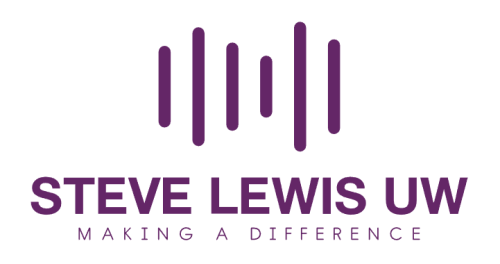Goal setting is a powerful process that enables individuals to turn their dreams and aspirations into achievable targets. It provides a clear direction, enhances focus, and motivates people to take proactive steps towards personal and professional growth. Whether it is a short-term objective or a long-term vision, effective goal setting is a crucial skill that paves the way for success in various aspects of life.
The process of goal setting begins with self-reflection and introspection. It involves identifying one’s strengths, weaknesses, values, and desires. By understanding oneself better, individuals can align their goals with their passions and aspirations, creating a sense of purpose and meaning. Setting goals that resonate with one’s values and interests increases intrinsic motivation, making it more likely for individuals to persist and overcome obstacles along the way.
One of the key aspects of effective goal setting is ensuring that goals are SMART: specific, measurable, attainable, relevant, and time-bound. Specific goals provide clarity and focus by answering the “what,” “why,” and “how” of the desired outcome. Measurable goals allow individuals to track their progress and evaluate their success. Attainable goals are challenging yet realistic, pushing individuals beyond their comfort zones without overwhelming them. Relevant goals align with one’s overall objectives and values, ensuring that they contribute to personal growth and fulfillment. Lastly, time-bound goals have a defined timeline, providing a sense of urgency and accountability.
Setting goals not only provides a clear target to work towards but also helps in breaking down overwhelming aspirations into manageable steps. By breaking down goals into smaller, actionable tasks, individuals can create a roadmap that guides their progress. Each milestone achieved serves as a motivation to move forward, building momentum and confidence along the way. This step-by-step approach allows individuals to focus on the present moment while keeping the ultimate goal in mind, fostering a sense of achievement and progress.
Goal setting also plays a vital role in enhancing productivity and time management. When individuals have a clear vision of what they want to accomplish, they can prioritize their tasks, allocate resources effectively, and minimize distractions. By having a sense of purpose and direction, individuals are more likely to stay focused and make conscious choices that align with their goals. Time-bound goals act as a reminder of the limited time available, encouraging individuals to manage their time efficiently and avoid procrastination.
Moreover, goal setting fosters personal growth and development. As individuals strive towards their goals, they acquire new knowledge, skills, and experiences. The process of working towards a goal often involves stepping outside one’s comfort zone and embracing challenges. This leads to personal transformation, resilience, and an expanded set of capabilities. Even if individuals do not achieve their goals exactly as planned, the lessons learned and the growth experienced during the journey are invaluable.
In addition to personal growth, goal setting is essential for professional success. In the workplace, setting clear and meaningful goals improves performance, boosts motivation, and increases job satisfaction. It provides employees with a sense of direction and purpose, aligning their efforts with organizational objectives. Effective goal setting also enables managers to track progress, provide feedback, and facilitate growth and development within their teams. It creates a culture of accountability, collaboration, and continuous improvement.
In conclusion, goal setting is a fundamental process that empowers individuals to turn their dreams into reality. By setting SMART goals, breaking them down into actionable steps, and maintaining focus and motivation, individuals can pave the way to personal and professional success. Goal setting enhances self-awareness, time management, productivity, and personal growth. It provides a roadmap for progress, allowing individuals to overcome obstacles, learn from setbacks, and celebrate achievements. Ultimately, goal setting is a transformative process that empowers individuals to live their lives with purpose, passion, and fulfilment.
Step By Step Guide To Goal Setting:
Goal setting is a process that requires careful planning and execution. Here is a step-by-step guide to help you set and achieve your goals effectively:
- Self-Reflection and Define Your Values: Start by reflecting on your values, passions, and aspirations. Consider what truly matters to you and what you want to achieve in different areas of your life, such as career, relationships, health, or personal development. This step will help you align your goals with your core values, ensuring they are meaningful and fulfilling.
- Identify Specific Goals: Once you have a clear understanding of your values and aspirations, define your goals. Make sure they are specific and well-defined. Instead of a vague goal like “get healthier,” specify a goal like “exercise for 30 minutes five times a week” or “lose 10 pounds in three months.” Specific goals provide clarity and focus, making it easier to plan and take action.
- Make Goals Measurable: Set measurable goals that can be tracked and evaluated. Include quantifiable criteria to determine your progress and success. For instance, if your goal is to save money, specify an exact amount or percentage of your income to save each month. Measurable goals help you stay motivated, as you can track your achievements along the way.
- Ensure Goals Are Attainable: While it’s essential to set ambitious goals, ensure they are realistic and attainable. Assess your current resources, skills, and capabilities to determine if the goal is within reach. Set challenging targets that push you beyond your comfort zone, but avoid setting goals that are too overwhelming or impossible to achieve. Finding the right balance is crucial for sustained motivation and success.
- Align Goals with Relevance: Ensure your goals align with your overall objectives and priorities. Consider how each goal contributes to your long-term vision and values. Ask yourself if the goal is meaningful and relevant to your life. Goals that resonate with your purpose and passions are more likely to inspire and motivate you to take consistent action.
- Set Time-Bound Deadlines: Assign deadlines to your goals to create a sense of urgency and accountability. Having a timeline helps you stay focused and prevents procrastination. Break down long-term goals into shorter milestones with specific deadlines. This approach allows you to track progress and make necessary adjustments along the way.
- Break Goals into Actionable Steps: Break down your goals into smaller, manageable tasks or action steps. Each task should be clear, specific, and actionable. Consider what actions you need to take to move closer to your goal. For example, if your goal is to learn a new language, your action steps could include finding a language course, practicing vocabulary daily, or scheduling conversation sessions with a native speaker.
- Create a Plan: Develop a detailed plan that outlines the tasks, resources, and timelines needed to achieve your goals. Consider potential obstacles and develop strategies to overcome them. A well-structured plan helps you stay organized, track progress, and adjust your approach if needed.
- Monitor Progress and Stay Accountable: Regularly monitor your progress towards your goals. Keep track of the tasks completed, milestones achieved, and setbacks encountered. Use tools like to-do lists, calendars, or goal-tracking apps to stay organized and motivated. Additionally, sharing your goals with a trusted friend or mentor can provide external accountability and support.
- Celebrate Achievements and Review Goals: Celebrate your achievements along the way, regardless of their size. Acknowledge your progress and give yourself credit for the effort and dedication invested. Periodically review your goals to ensure they still align with your values and aspirations. Adjust or refine them as necessary to stay on the path of growth and fulfillment.
Remember, goal setting is a dynamic process. As you achieve goals, new opportunities and aspirations may emerge. Embrace flexibility and adaptability, and be willing to adjust your goals as your circumstances change. With dedication, perseverance, and a clear plan, goal setting can lead you to personal and professional success.
 Steve Lewis UW Making A Difference
Steve Lewis UW Making A Difference



